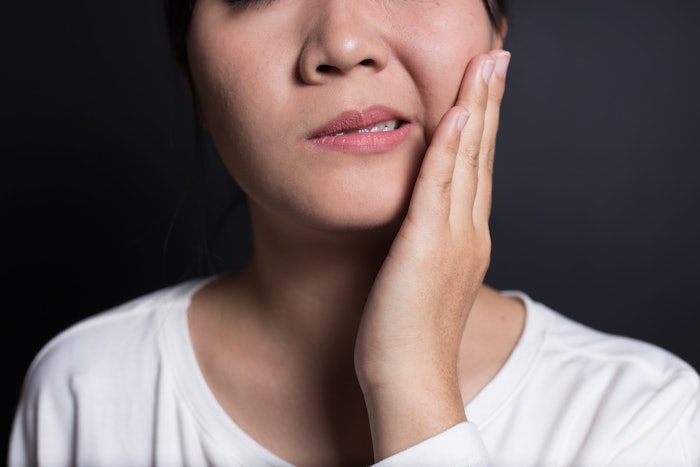
There has been a term floating around social media that has grabbed out attention: corisol face. Perhaps you have heard it swirling around, perhaps not, but the fact of the matter is that clients are hearing this term and thinking that stress is making their face puffy. We break down here what you need to know.
Cortisol Face Origins
Like all of our favorite, borderline sketchy new terms, corisol face popped up on social media due to influencers and beauty enthusiasts claiming it was the cause of their facial puffiness.
Our adrenal gland makes the hormone cortisol to not only help our bodies deal with stress but also to assist with a number of body functions. It helps to control blood pressure, blood sugar and reduce inflammation. When the body is stressed, it makes cortisol.
Social media influencers assumed because they had been stressed and their face was a little puffy, that the two dots could be connected, but that isn't necessarily the case.
Related: Under-eye Bags or Festoons?
Is Cortisol Face A Thing?
Though cortisol can make the face puffy, that is only in very high amounts. These high amounts are unlikely with the typical slightly puffy face. Medical experts suggest that there are a number of other medical reasons that the face may swell, including: insufficient sleep, too much salt, diet and allergies. These are more likely the case for slight facial swelling, but this type of facial swelling isn't usually detectable by others.
Significant facial swelling is likely caused by an underlying medical condition. The disease Cushing Syndrome is a condition in which the body overproduces cortisol, which can lead to overall swelling including the face. Cushing Syndrome can be caused by the prolonged use of corticosteroids or a tumor in the pituitary, which is termed Cushing Disease as opposed to Cushing Syndrome. The swelling in those with Cushing Syndrome or Cushing Disease is called Moon Face or Moon Facies, and is much more apparent and indicative of a more serious health issue.
So, if you have a client coming in claiming to have "cortisol face," advise them that it is likely due to diet, salt intake, sleep or allergies. Assist them with a relaxing lymphatic drainage massage and provide them with lifestyle education to help minimize their facial pufiness. If they are experiencing high amounts of stress, recommend a treatment and provide them with the tools in your toolbox to help manage stress.










